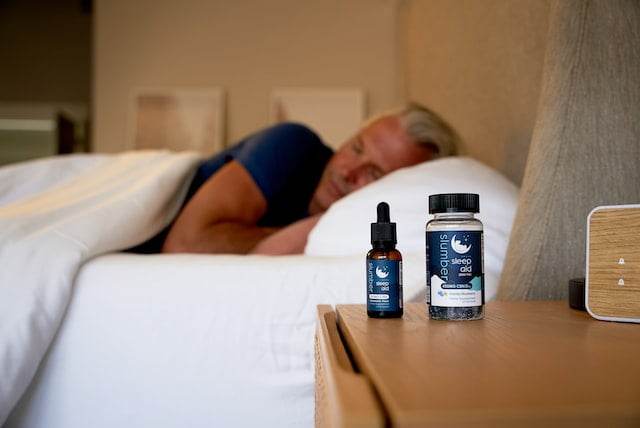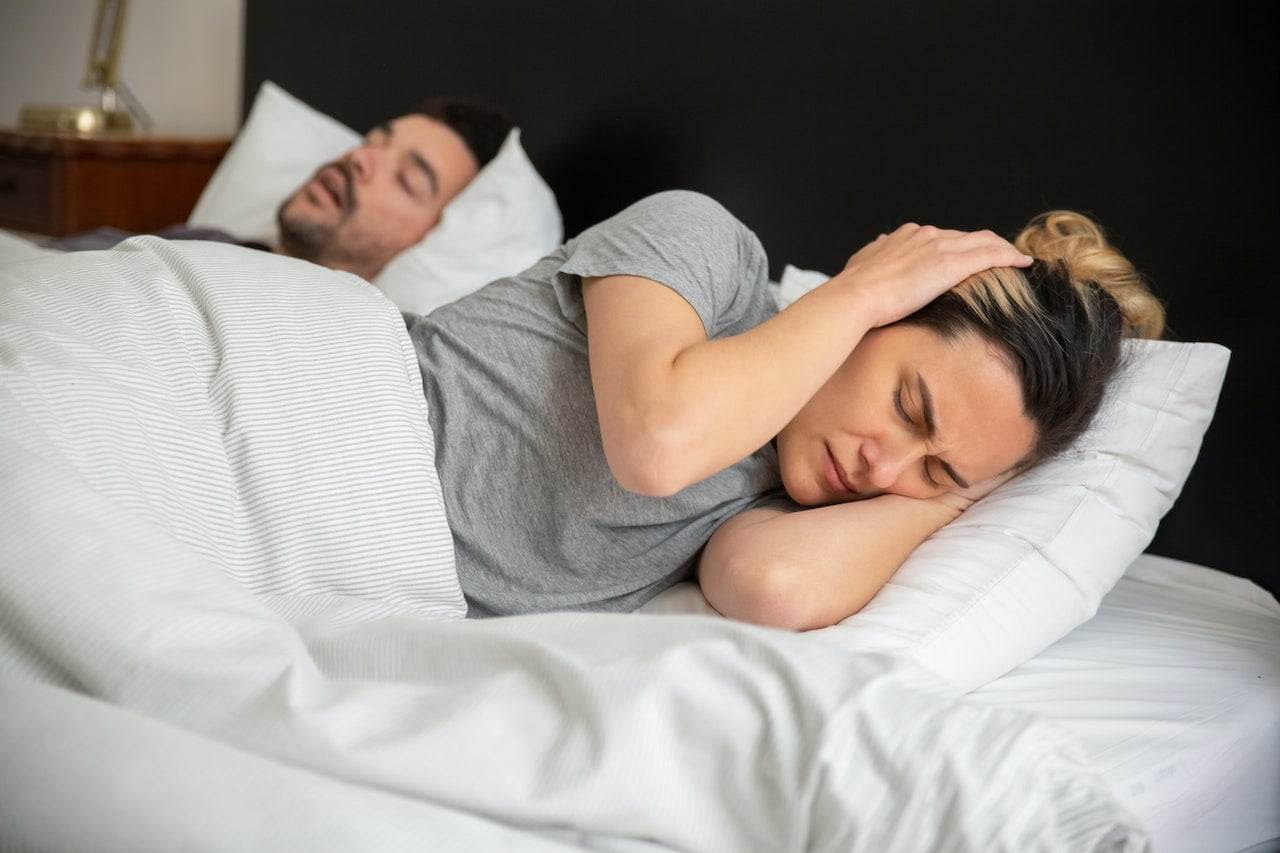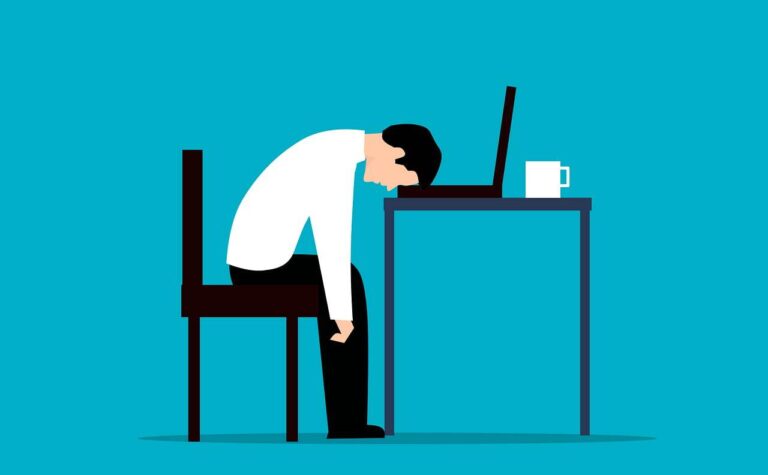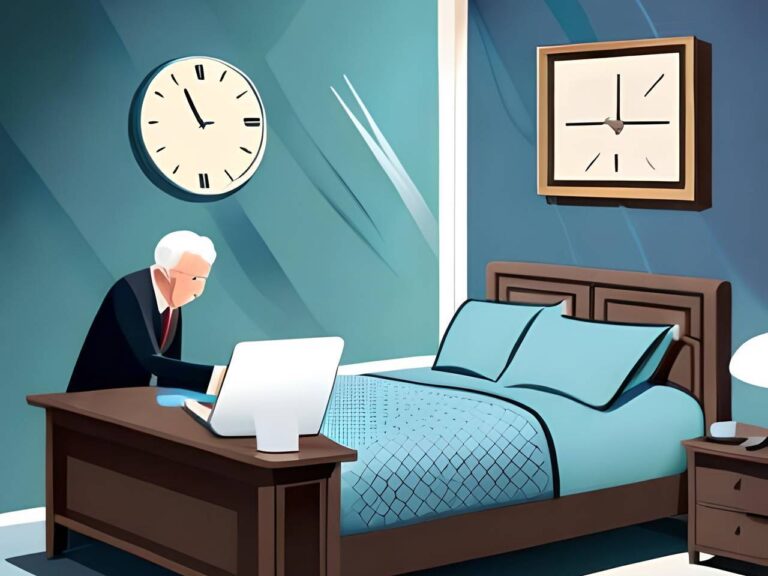Snoring is a common problem that affects millions of people worldwide. It not only interferes with your sleep, but it may also interfere with your partner’s sleep, which might cause problems in your relationship. You don’t have to worry if you snore; there are numerous things you may do to stop snoring and obtain a good night’s sleep.
How to Stop Snoring: Tips, Tricks, and Expert Advice for a Good Night’s Sleep
Table of Contents
Understanding the Causes of Snoring
Prior to learning how to stop snoring, it’s critical to comprehend what causes snoring in the first place. The tissues in your throat vibrate and generate noise when there is a partial obstruction in the airflow via your mouth and nose.
Some common causes of snoring include:
- Obesity
- Smoking
- Alcohol consumption
- Sleeping on your back
- Allergies
- Enlarged tonsils or adenoids
Understanding the root cause of your snoring can help you address the problem more effectively.
Tips to Stop Snoring
You can stop snoring and have a restful night’s sleep by using the suggestions and techniques listed below. Also, you may make sure that your snoring therapy is founded on the most recent scientific research and industry best practices by consulting sleep specialists and taking into account the professional sources provided in this article.
Lose Weight: How it Helps
Losing weight helps lessen snoring if you’re overweight or obese. The strain on your airways caused by extra weight around your neck might make it difficult to breathe while you’re sleeping. You can lessen the strain on your airways and stop snoring by decreasing weight.
Muscle wasting, lower energy levels, and a reduced metabolism can all result with rapid weight reduction. It is advised to reduce weight gradually and healthily by following a diet and exercising.
Quit Smoking: How it Helps
In addition to withdrawal symptoms including irritation, anxiety, and sleeplessness, quitting smoking might also result in these. Moreover, giving up smoking may result in weight gain, which exacerbates snoring. It’s crucial to discuss the best stopping strategy with your doctor if you’re thinking about quitting smoking.
Limit Alcohol Consumption: How it Helps
Before going to bed, drinking alcohol can relax your muscles, especially those in your throat, which can worsen snoring. You may lessen snoring by minimizing your alcohol intake, especially before night. This will prevent your throat muscles from relaxing too much.
Alcoholism can damage the liver and raise the chance of developing certain malignancies and addictions.

Change Your Sleeping Position: How it Helps
Sleeping on your back can make snoring worse, as it allows your tongue and soft palate to collapse to the back of your throat. By sleeping on your side instead, you can help prevent your tongue and soft palate from collapsing and reduce snoring.
Sleeping on your side can also cause pain and discomfort in your neck, back, and hips. It’s important to find a comfortable sleeping position that works for you and to use pillows to support your head and neck.
Treat Allergies: How it Helps
Allergies can cause inflammation and congestion in your nasal passages, which can lead to snoring. By treating your allergies with medication or allergy shots, you can help reduce inflammation and congestion in your nasal passages and reduce snoring.
Remember that these treatments can also have side effects. Some common side effects of allergy medications include drowsiness, dry mouth, and headache. Allergy shots can also cause itching and swelling at the injection site.
Consider a Humidifier: How it Helps
Dry air can irritate the tissues in your throat, making snoring worse. According to a study published in the Journal of Clinical Sleep Medicine, using a humidifier can help keep the air in your bedroom moist and reduce the irritation in your throat, thus reducing snoring.
Keep the humidifier clean to prevent the growth of mold and bacteria. Additionally, using a humidifier can also increase the humidity in your room, which can make it harder to breathe for people with certain respiratory conditions.

Use Nasal Strips: How it Helps
Nasal strips can aid in opening up your nasal passages, facilitating nasal breathing and minimizing snoring. Using nasal strips can improve airflow through your nasal passages and lessen the probability of snoring, according to a research printed in Sleep Medicine Reviews.
They could make your skin itch or turn red. Also, those who have sensitive skin or other skin issues may not be able to use nasal strips.
Expert Advice from Sleep Specialists
It’s a good idea to consult sleep experts in addition to the aforementioned recommendations and tactics. Experts in identifying and treating sleep problems, including snoring, include pulmonologists, sleep medicine doctors, and otolaryngologists. They can provide you individualized treatment choices and assist you in identifying the underlying cause of your snoring.
When to Seek Professional Medical Advice
While the advice in this article can help you stop snoring, it’s vital to remember that snoring can also be a sign of more significant health issues. You should seek expert medical assistance if your snoring continues despite using the tips and tactics.
Snoring may have underlying medical conditions including sleep apnea, which causes small interruptions in breathing as you sleep. Serious health effects from sleep apnea might include excessive blood pressure, heart disease, and stroke.
It’s crucial to consult a doctor if you routinely snore loudly, feel too exhausted throughout the day, struggle to concentrate, or have been informed that you stop breathing while you sleep. Your physician can conduct a sleep study to identify the root of your snoring and suggest the most effective course of therapy.
Your doctor may occasionally recommend that you have additional assessment and treatment from a sleep expert. Lifestyle modifications, such as quitting drinking and decreasing weight, as well as the use of medical equipment, such as continuous positive airway pressure (CPAP) machines, or even surgery, are all potential treatments for sleep apnea.
Common Myths and Misconceptions about Snoring
Millions of individuals throughout the world suffer from the widespread problem of snoring, yet there are still many myths and false beliefs regarding its origins and treatments. You may better comprehend the issue and come up with workable solutions by knowing the reality behind these common misconceptions.
Myth #1: Snoring is normal and nothing to worry about.
Snoring is not natural and can be a sign of more serious underlying conditions, such as sleep apnea. It’s crucial to seek expert medical assistance if your snoring is disturbing your own or your partner’s sleep.
Myth #2: Snoring only affects overweight people.
Obesity is one cause of snoring, but it’s not the only one. Snoring can also be caused by other things, such drinking alcohol, smoking, and sleeping positions.
Myth #3: Wearing a mouthguard will cure snoring.
Mouthguards can reduce snoring, but they are not a cure-all. To successfully minimize or stop snoring, it’s crucial to treat its underlying causes, including as obesity, smoking, and alcohol usage.
Myth #4: Snoring is only a problem for the person snoring.
Snoring can harm your partner’s sleep and cause relationship problems. It’s crucial to get treatment if you snore in order to protect your relationship as well as your personal health.
Conclusion
Snoring may be a bothersome issue that interferes with both your and your partner’s sleep. To stop snoring and obtain a restful night’s sleep, you may do a lot of things. You may start sleeping better and snoring less by comprehending the reasons behind snoring and applying the advice provided in this article.
In conclusion, you may successfully lessen snoring and have a better night’s sleep by decreasing weight, stopping smoking, consuming less alcohol, adjusting your sleeping posture, treating allergies, using a humidifier, performing tongue and throat exercises, and utilizing nasal strips. Be careful to consult your doctor or a sleep expert if you have any worries about your snoring.



